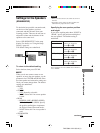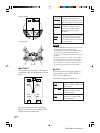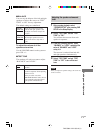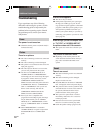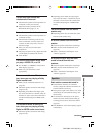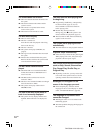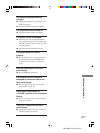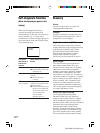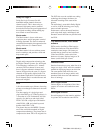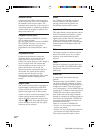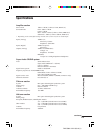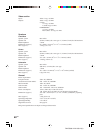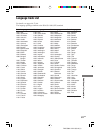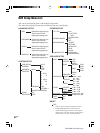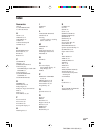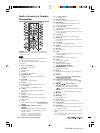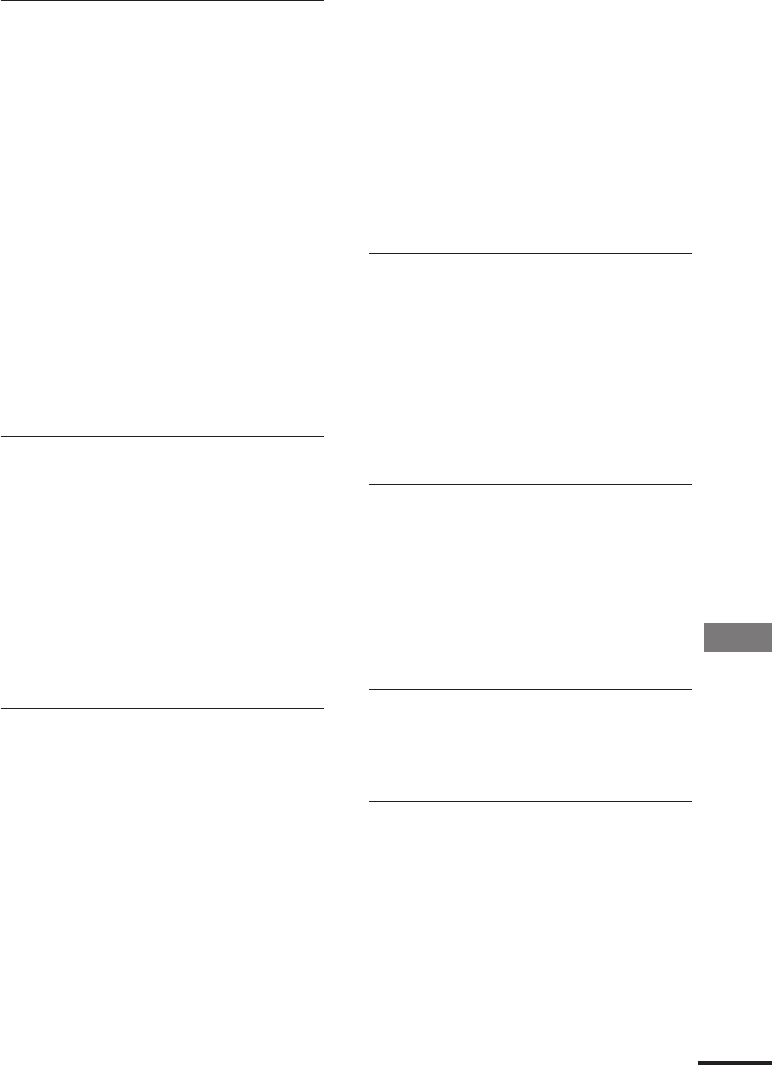
Additional Information
77
GB
DAV-S880 4-241-069-11(1)
Dolby Pro Logic II
Dolby Pro Logic II creates five full-
bandwidth output channels from two-
channel sources. This is done using an
advanced, high-purity matrix surround
decoder that extracts the spatial properties of
the original recording without adding any
new sounds or tonal colorations.
Movie mode
The Movie mode is for use with stereo
television shows and all programs encoded
in Dolby Surround. The result is enhanced
soundfield directionality that approaches the
quality of discrete 5.1-channel sound.
Music mode
The Music mode is for use with any stereo
music recordings, and provides a wide and
deep sound space.
DTS
Digital audio compression technology that
the Digital Theater Systems, Inc. developed.
This technology conforms to 5.1-channel
surround. The rear channel is stereo and
there is discrete subwoofer channel in this
format. DTS provides the same 5.1 discrete
channels of high quality digital audio. The
good channel separation is realized because
the all channel data is recorded discrete and
processed in digital.
DVD
A disc that contains up to 8 hours of moving
pictures even though its diameter is the same
as a CD.
The data capacity of a single-layer and
single-sided DVD, at 4.7 GB (Giga Byte), is
7 times that of a CD. Furthermore, the data
capacity of a dual-layer and single-sided
DVD is 8.5 GB, a single-layer and double-
sided DVD 9.4 GB, and a dual-layer and
double-sided DVD 17 GB.
The picture data uses the MPEG 2 format,
one of the worldwide standards of digital
compression technology. The picture data is
compressed to about 1/40 of its original size.
The DVD also uses the variable rate coding
technology that changes the data to be
allocated according to the status of the
picture.
The audio data is recorded in Dolby Digital
as well as in PCM, allowing you to enjoy
more real audio presence.
Furthermore, various advanced functions
such as the multi-angle, multilingual, and
Parental Control functions are provided with
the DVD.
Film based software, Video based
software
DVDs can be classified as Film based or
Video based software. Film based DVDs
contain the same images (24 frames per
second) that are shown at movie theaters.
Video based DVDs, such as television
dramas or sit-coms, displays images at 30
frames (or 60 fields) per second.
Interlace format
Interlace format shows every other line of an
image as a single “field” and is the standard
method for displaying images on television.
The even number field shows the even
numbered lines of an image, and the odd
numbered field shows the odd numbered
lines of an image.
Multi-angle function
Va rious angles, or viewpoints of the video
camera, for a scene are recorded on some
DVDs.
Multilingual function
Several languages for the sound or subtitles
in a picture are recorded on some DVDs.
continued



